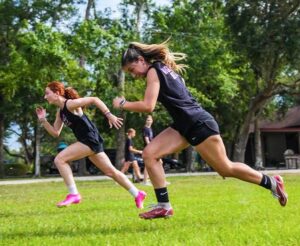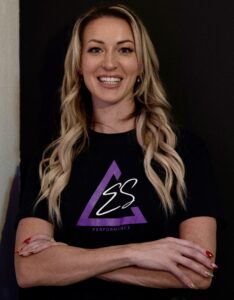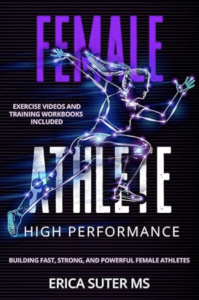Pre-teen and teenage girls soccer players need several key nutrients to optimize bone, muscle, and hormonal growth.
Their adolescent years are the second most rapid period of growth in their lives. Add on the amount of exercise they’re getting from practices, extra skills training, and games throughout the week, and the proper nutrients become even more critical in their development.
As you read this, I implore you to be aware of the deficiencies in a vegan diet for young and growing soccer girls, and adjust accordingly, whether this is adopting another diet or supplementing where needed.
The top nutrients required for girls to grow and perform properly are:
1. Protein
Vegan diets do not contain all the essential amino acids, namely, lysine, methionine, isoleucine, threonine, and tryptophan. These essential amino acids are critical for muscle repair and recovery, maintenance of bone strength, collagen production, and nervous system function.
Carnosine is also less abundant in a vegan diet. This is problematic for growing female athletes because carnosine plays a significant role in neutralizing lactic acid, which helps delay fatigue in explosive and intense workouts.
Creatine is mainly found in red meat and is important for more explosive outputs and running at higher speeds.
Taurine, another amino acid, is not found in high quantities in a vegan diet. Taurine helps to delay fatigue and reduce muscle soreness. It increases oxygen uptake, which allows female athletes to work harder and longer.

2. Calcium
Since vegan diets omit dairy and fatty fish, it is extremely hard to get bioavailable calcium. Sure, some leafy greens contain calcium, but female athletes would have to consume copious amounts to meet their daily requirement of 1,300 milligrams. Calcium is a key micronutrient for strong bones. If girls are deficient in it during critical years of adolescence, they’re at an increased risk of stress fractures young, and then osteoporosis later in adulthood because they missed the optimal window for peak bone density building.

3. Iron
Red meat is not in a vegan diet and is the single best source of heme iron that female athletes need for health and performance. Heme iron is much easier to absorb than the non-heme iron in leafy greens. Heme iron is needed for oxygen delivery to the muscles for improved endurance and energy production. Iron deficiency from vegan diets can lead to fatigue and reduced explosiveness and speed.
4. Vitamin D
The richest food sources of vitamin D include fatty fish, eggs, and milk, which vegan diets omit. This is a major issue for growing female athletes because, combined with calcium, they need vitamin D for bone growth. If girls are deficient in vitamin D, this can lead to stress fracture risk, muscle weakness, and be more prone to overuse injuries, and frequent illness due to weakening of the immune system.

5. Iodine
Female athletes need iodine for thyroid hormone production. The thyroid plays a pivotal role in growth and development during the teen years. Iodine deficiency can lead to a slow thyroid, which can cause fatigue, weight gain, poor cognitive function, and brain fog. Iodine is only rich in animal-based sources like eggs, cod, tuna, and dairy products. You can get it from the plant-based source, kelp (seaweed), but you would have to consume heaps of kelp to get enough iodine.
6. Omega-3 Fatty Acids
Needed for brain health, myelin sheath building of the neurotransmitters, skin elasticity, female hormone production, and joint health. Foods richest in Omega 3 fatty acids include mainly animal-based sources (since they contain both long-chain Omega-3s, EPA and DHA) such as salmon, cod, oysters, beef, and sardines. Some plant-based options, like walnuts, flax, and chia seeds, do have omega-3, but you would have to consume a lot to get the most out of them. Too, nuts and seeds aren’t as bio-available, meaning some people have trouble fully digesting them and reaping their supposed benefits. Don’t believe me? Check your poop after eating nuts and seeds and you might find they come right out. I know it’s gross to see the seeds in the toilet, but this is a tell-tale sign you aren’t absorbing all the nutrients from these plant-based sources.
Female hormones thrive on Omega 3 fatty acids, so if girls are suffering period pains and negative menstrual cycle symptoms, this might be a sign they are deficient in these essential fatty acids.
My Personal Vegan Experiment
When something becomes trendy in nutrition, I sometimes test it out for about six months to see the effects. I want to do my own personal experiment, alongside reading clinical studies, and then come to my own conclusion.
So, I tested the vegan diet.
I tried it for a six-month stint in 2015. Without getting into a whole dissertation, here are some quick notes from my experience:
- Worse acne
- Period pains, such as cramps and mood swings
- Severe bloating and constipation
- Thinning hairline
- Lost muscle
- Muscle soreness, decreased workout recovery
When I began to introduce animal-based sources again, namely red meat, eggs, fish, and dairy, and started to get B vitamins, essential proteins, iron, iodine, calcium, vitamin D, and fats, here’s what happened:
- Acne gone
- No more period pains
- No more bloating and gut issues
- Hair grew back
- The most jacked I’ve been
- No more muscle soreness, improved recovery and ability to bounce back from intense workouts
I’m so glad I found my way back to animal-based food sources because I feel as young as a teenager, have vibrant energy, plump and clear skin, no period pains, the most lean muscle mass I’ve ever had, and incredible digestion. My thyroid is back on track, too.
For more on how my health has improved now, leaving veganism behind (with blood work reports included), I discuss in this video Faster At Age 35 Than When I Was A College All-American, and how the biggest change I made was leaning into red meat and animal-based foods:
Do You
At the end of the day, though, I won’t judge any girls’ soccer players for going vegan. Hey, if it works for you, go for it! Alex Morgan and several other pro athletes are vegan, and it seems to be going well so far. However, I’m still waiting on their blood work reports and some more transparency about her internal health, thyroid hormones, and more. As long as everyone is vibrant inside and out in their performance and health, then amazing!
Again, no judgment. I’m just here to be honest about the deficiencies so you can change course, or get creative and adjust! I have some vegan friends who do a great job of getting enough coconut and olive oil as well as avocado for healthy fats, they are disciplined with their vitamin D supplementation, and getting out in the sun. Still, they have some deficiencies that supplements can’t always solve. Food will always be the BEST source to absorb nutrients fully.
I encourage you to test everything out. And do so for several months.
Check your performance, your health, your energy, your skin, your mood, your digestion, your menstrual cycle symptoms, your body composition, and if something feels off, then it’s time to reassess what you’re currently eating.
And maybe, like me, you’ll go as far as to check internal health markers, get blood work done one day, and see what is happening beneath the surface. So, whether you go vegan or not, I hope you find a way to thrive as a girls’ soccer player and address any deficiencies you have!
ABOUT THE AUTHOR

Erica Mulholland is a former college 3x All-American soccer player and now Hall of Famer from Johns Hopkins University. She holds a Master of Science in Exercise Science and has been helping female athletes of all sports with speed, agility, strength, power, and conditioning for over 13 years. She has worked with soccer, lacrosse, track, volleyball, softball, and basketball girls, and has inspired her athletes to strength train not just for sport, but for life.
Get Erica’s first book THE STRONG FEMALE ATHLETE
Get Erica’s second book FEMALE ATHLETE HIGH PERFORMANCE

Check out her podcast: The Strong Female Athlete
_
GIRLS SOCCER NETWORK: YOUR SOURCE FOR GIRLS SOCCER NEWS

Leave a Reply